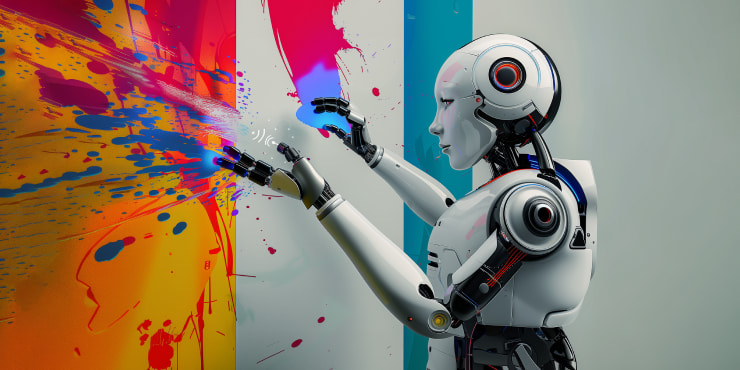In the rapidly evolving world of technology, AI for augmented reality campaigns is becoming a game-changer. As more businesses strive to deliver immersive experiences, the integration of AI in augmented reality (AR) offers innovative solutions that captivate audiences. This article delves into how AI enhances AR campaigns, offering insights into its transformative potential.

Understanding AI and Augmented Reality
Before diving into the specifics, it’s crucial to understand the basic concepts. Artificial Intelligence (AI) refers to the simulation of human intelligence in machines. It enables systems to learn, reason, and self-correct. On the other hand, Augmented Reality (AR) overlays digital information onto the real world, enhancing the user’s perception of their environment.
The Synergy of AI and AR
The fusion of AI and AR creates powerful tools that redefine user experiences. AI algorithms can analyze vast amounts of data, personalizing content in real-time. This is particularly useful in marketing, where personalized experiences can significantly impact consumer engagement.
How AI Transforms AR Marketing Campaigns
1. Enhanced Personalization
AI-driven analytics offer deeper insights into consumer behavior, allowing marketers to create highly personalized AR campaigns. By understanding preferences and behaviors, brands can tailor experiences that resonate with individual users.
2. Improved Interactivity
AI enhances the interactive elements of augmented reality. It helps in interpreting user gestures and voice commands, making interactions more intuitive and engaging. This seamless integration boosts user satisfaction and retention.
3. Real-time Data Processing
With AI, AR campaigns can process data in real-time, adapting to user interactions on the fly. This dynamic approach ensures that the content remains relevant and engaging, enhancing the overall user experience.
4. Advanced Analytics
AI tools provide advanced analytics that help measure the effectiveness of AR campaigns. By analyzing user interactions and feedback, marketers can refine their strategies, ensuring optimal results.
Applications of AI in Augmented Reality
Retail and E-commerce
In the retail sector, AI-powered AR applications allow customers to try products virtually before making a purchase. This not only enhances the shopping experience but also reduces return rates. For more insights on how AI is revolutionizing retail design, check out AI emotional design.
Automotive Industry
AI and AR are transforming the automotive industry by offering virtual showrooms and test drives. These technologies enable customers to explore car models in detail, enhancing their decision-making process.
Education and Training
In education, AI-enhanced AR tools provide immersive learning experiences. Students can explore complex concepts in an interactive way, improving retention and engagement.
Challenges and Future Prospects
Technical Limitations
Despite the potential, there are technical challenges in implementing AI and AR. High development costs and the need for specialized skills can be barriers to widespread adoption.
Privacy Concerns
The use of AI in AR raises privacy concerns, particularly regarding data collection and usage. It’s crucial for companies to ensure transparent data practices to build consumer trust.
Future Innovations
The future of AI in AR is promising, with ongoing innovations expected to address current challenges. As technology advances, we can anticipate more sophisticated and accessible solutions that enhance user experiences.
Conclusion
AI for augmented reality campaigns is revolutionizing the way businesses engage with their audiences. By offering personalized, interactive, and data-driven experiences, AI-enhanced AR campaigns can significantly boost consumer engagement and satisfaction. As technology continues to evolve, the possibilities for innovation in this space are endless.

FAQs
What is the role of AI in augmented reality?
AI enhances augmented reality by providing personalized experiences, improving interactivity, and enabling real-time data processing.
How does AI improve AR marketing campaigns?
AI improves AR marketing campaigns by offering enhanced personalization, advanced analytics, and improved interactivity, leading to better consumer engagement.
What are the challenges of integrating AI with AR?
Challenges include technical limitations, high development costs, and privacy concerns related to data collection and usage.
For more on how AI is shaping the future of design, explore AI graphic design tools.







